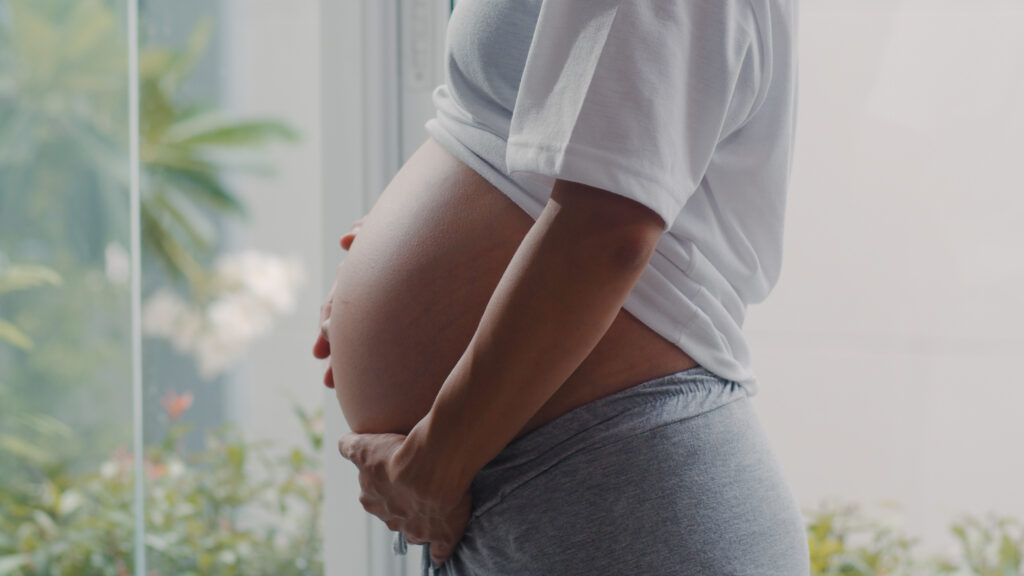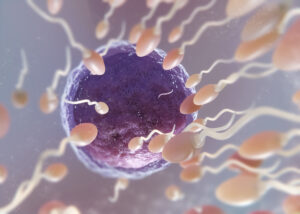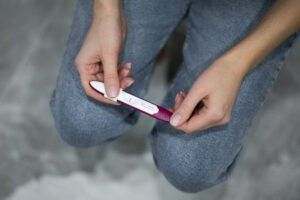From Teen To Parent – A Guide to Teenage Pregnancy

One of the consequences of having unprotected sex is pregnancy (as well as STIs). Pregnancy could be planned, a mistake, or it might be that your usual contraception method failed (they aren’t 100% certain). If you think you could be pregnant, read our blog for information on testing, emergency contraception, your choices, keeping the baby and the help available.
WARNING: Due to the nature of the subject, some of the content in this blog may not be suitable for some of our younger readers.
This blog is part of our No Shame No Secrets – Sexual Health and Wellbeing Campaign, where we look at many different elements of keeping yourself sexually healthy and safe. You’ll find links to all our campaign blogs here, and follow our social media channels to watch some fun videos (links at bottom of this blog).
How to know if you’re pregnant
Kissing, touching or oral sex can not get you pregnant. Semen has to enter the vagina for you to get pregnant. Find out more about the menstrual cycle and how pregnancy happens here.
Missing a period can be a sign of pregnancy, but there are other reasons your period might not be regular. If you’ve missed a period but haven’t had vaginal sex, then you can’t be pregnant. Sometimes people continue to have periods throughout their pregnancy too.
The only way to be sure is to get a pregnancy test. Home testing kits are available to buy in most supermarkets or pharmacies, or you could get a free test from your local sexual health clinic or your GP. It usually involves peeing on a stick. If your test is positive, and you’ve followed all the instructions correctly, then it is almost certain that you are pregnant because they are very accurate. But negative test results can be wrong sometimes. There are usually two tests in a pack, so take the second test if you still think you could be pregnant. If it’s still negative and your period still doesn’t come, then make an appointment with your doctor.
What happens if I’ve had unprotected sex?
Don’t cross your fingers and hope that you won’t get pregnant. There are emergency contraception options.
Emergency contraceptive pill
Also known as the morning-after pill (although you have a bit longer to take it). It can be taken within 3-5 days of having unprotected sex, but the sooner, the better – don’t wait. If you’re sick within a few hours of taking the pill, you’ll need to go back and retake it. You can get it free (even if you’re under 16) at sexual health (GUM) clinics or minor injuries units or some GPs, young people clinics, pharmacies, or A&E departments. If you’re over 16, you can also buy it from most pharmacies.
Intrauterine device (IUD) or Coil
You can choose to have an IUD fitted as emergency contraception within 5 days of having unprotected sex. This is a plastic and copper device inserted into your womb. This can also be kept in after and used as your regular contraception. Remember – while it can prevent pregnancy, condoms are the only way to protect from STIs.
This could be an excellent time to look at your contraceptive options. Take a look at our Contraception Unravelled blog here.
If you’ve had sex without a condom with someone who isn’t a regular partner, it’s probably a good idea to get an STI test too. More info about this in our blog, The Itchy Guide To STIs and Testing.
Tell someone you trust
If you are pregnant, you will have some big decisions to make. Thinking about your options and deciding on your own can be hard, and we advise you to get support to discuss your options. Choose someone you trust, like your partner, a friend, family member, teacher, social worker or doctor. If you feel that you can’t talk to anybody, then Meic is here to listen and give you advice and information so that you can make an informed decision about your future.
Talk through your feelings. Don’t worry about saying the wrong thing. It’s ok to feel scared, worried or even excited. Whatever decisions you make should be your own, and you shouldn’t let anybody force you into something you don’t want.
Your choices
It’s your body and your choice what happens next.
There are three options:
- Keeping the baby – see below
- Having an abortion – read more about abortion on the NHS Wales website
- Adoption – read more about having your child adopted on the Childline website
Brook’s Making a Decision About a Pregnancy page discusses these different options and things you should consider. This may help clear things up in your mind.
This might be an easy decision, or maybe you’re confused and don’t know what the right decision is for you. Again we advise you to talk to someone you trust, who you know will help you talk through your options rather than tell you what you should be doing. Meic is here if you don’t have anyone to talk to (contact details below).
Keeping the baby
Once you know you’re pregnant and you know that you want to continue with the pregnancy, then make an appointment with a midwife (through your GP surgery) so you can start getting all the checks and treatment you need for a healthy pregnancy. This is called antenatal care.
Pregnancy lasts around 40 weeks. Your midwife will be able to work out approximately how far into the pregnancy you are. You’ll have regular appointments where they will make sure that you and the baby are doing okay. Antenatal appointments include:
- measuring the bump to make sure the baby is growing as it should
- listening to the heartbeat of the baby
- checking your health
- advice on cutting out smoking and alcohol and eating healthily
- advice on taking folic acid and vitamins
- discussing all your childbirth options
You will also be sent for scans at 8-14 weeks and 18-21 weeks. Some people may need extra scans to monitor the pregnancy closely. You’ll also be given blood and screening tests for things like STIs and conditions like Down’s syndrome.
Your midwife will also tell you about any antenatal classes in your area, which will help prepare you for childbirth and caring for your baby.
Learn more about antenatal care in the Pregnancy Guide on the NHS Wales website.
There’s also lots of information on being healthy during pregnancy on Tommy’s website.
Help available to young parents
Education
Having a baby doesn’t mean you have to give up on your education. The Equality Law protects your rights if you’re pregnant and in education or work.
You have to be in education until you’re 16. Being pregnant doesn’t mean you have to stop, and you’ll receive support. It might not be easy, but having a baby doesn’t have to change your future plans. You can stay in education until you give birth and take up to 18 weeks off immediately before and after the birth.
You’ll be appointed someone to help you settle back into education after the baby is born. They can advise you on finding childcare and see if you can get help with costs. Perhaps you have family members that can help with childcare who may be able to claim money if they are on Working Tax Credit or Universal Credit.
You might be able to claim the EMA (Education Maintenance Allowance) based on your household income. Eligible students aged 16-18 can get £40 a week to help with the cost of further education.
Keeping healthy
Healthy Start is a scheme that gives you a prepaid card to help buy milk, fruit and vegetables, pulses and infant formula. You can also get vitamins for you or your baby.
This scheme is usually only open to people on certain benefits who are over 10 weeks pregnant or with a child under 4. But, if you’re under 18 and over 10 weeks pregnant, you can get help until your baby is born. You won’t be eligible after the baby is born unless you get any of the benefits listed on this page. Apply for your Healthy Start card here.
Housing
If you’re worried about housing as a young parent, Shelter has advice on your options and any help available to you as a young parent. Check it out here.
Benefits
If you’re under 16, you’re not usually eligible for benefits except Child Benefit.
If you are over 16, use Gingerbread’s Teenage Parents Benefits Finder to check if you can claim benefits and tax credits while you’re under 18.
Further information and support
- No Shame No Secrets – Meic’s sexual health campaign
- Gingerbread – information on benefits, money, housing and childcare for single parents or young women living with a parent. Check out their Teenage Parents Benefits Finder to see if you’re eligible for anything
- Teenage Pregnancy Support – NHS Wales
- C-Card Scheme – Free condoms and sexual health advice for under 25s in Wales
- Brook – sexual health, education and well-being service for young people. Check out their pregnancy pages.
- Dewis – Teenage parents and schooling – information and links to help teenage parents with their education. There’s also a page with information about teenage parents and college
- Family Information Services – information, advice and guidance on different services relating to children, young people and their families, including childcare, children’s services, holiday activities and playgroups
- Shelter Cymru – housing advice for young parents
- Flying Start – support with children under 4 if you live in a Flying Start area
- Families First – funding local projects to support families (some are specific to young people). Each local authority area decides on the local need in their area
- Parenting. Give It Time – practical tips and expert advice for parenting challenges
- Family Lives – supporting parents before they reach crisis point
- Tommy’s – pregnancy charity providing expert advice for parents before, during and after pregnancy. They also support those that have lost babies

Talk to Meic
Meic is the information, advice and advocacy helpline for children and young people across Wales. Contact Meic if you need to talk to someone about anything that’s worrying or upsetting you. It’s free, confidential and anonymous. The service is open from 8am – midnight every day, and you can contact them by phone, WhatsApp, text, or online chat.






















